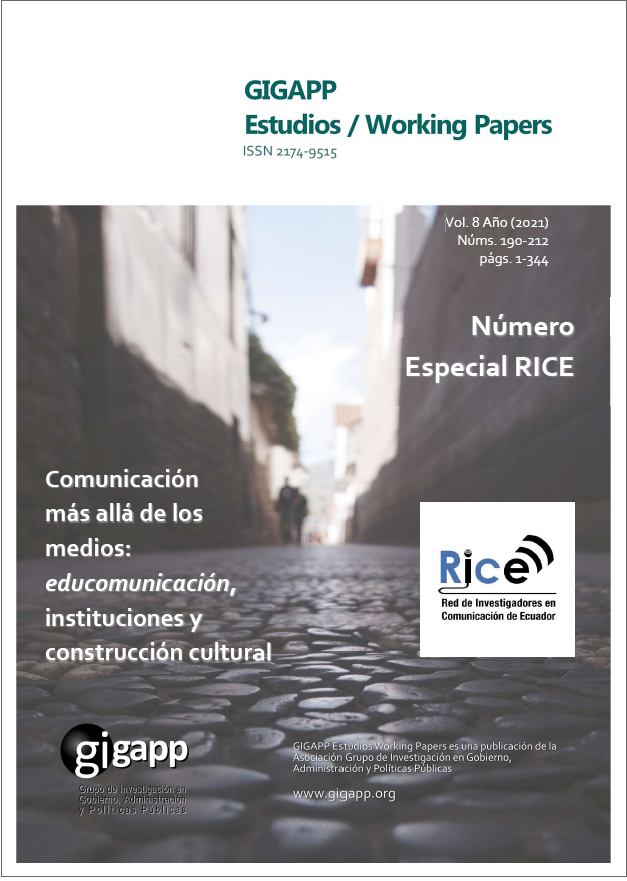A pesar de la culpa: Trabajo sexual y la producción de contradiscursos en contextos de violencia
Resumen
La conformación de contrapúblicos muestra cómo los sectores subalternos con capacidades de enunciación ofertan lecturas novedosas del campo discursivo al que se oponen y exponen formas diversas de comprensión de la sociedad y su gestión frente al Estado, la opinión y la moral públicas. Puede pensarse como contrapúblico a las trabajadoras sexuales organizadas en asociaciones por la defensa de sus derechos y que han generado una serie de acciones que buscan exponer la validez de la prostitución como un trabajo auténtico que necesita ser reconocido y legalizado, para así alcanzar garantías sociales y combatir diversas formas de explotación, violencia o discriminación. No obstante, este aparente contradiscurso no es enteramente asumido por sus propias generadoras. Existe una dualidad que las divide entre el deber político de posicionar una versión distinta de la realidad producida por el Estado, la moral y los medios de comunicación y, una vergüenza y culpa introyectadas, producto justamente del peso y efecto de los discursos hegemónicos que se ciernen sobre estas personas. Se genera así, un contrapúblico escindido.
Descargas
Citas
Butler, J. (2011). Mecanismos psíquicos del poder. Madrid: Cátedra.
Chakrabarty, D. (2008). La historia subalterna como pensamiento político. En S. Mezzadra (Ed.), Estudios postcoloniales. Ensayos fundamentales (págs. 45-166). Madrid: Traficantes de sueños.
Federici, S. (2010). Caliban y la bruja. Mujeres, cuerpo y acumulacion originaria. Madrid: Traficantes de Sueños.
Foucault, M. (2014). Historia de la sexualidad I. Argentina: Siglo veintiuno.
Fraser, N. (1997). Iustitia Interrupta. Reflexiones críticas desde la posición "postsocialista". Bogotá: Siglo del Hombre.
Goffman, E. (2006). Estigma, la identidad deteriorada. Buenos Aires: Amorrortu.
Goffman, E. (2012). La representación de la persona en la vida cotidiana. Buenos Aires: Amorrortu.
Hernando, A. (2000). Factores estructurales asociados a la identidad de género femenina. La no-inocencia de una construcción socio-cultural. En A. Hernando (Ed.), La construcción de la subjetividad femenina (págs. 101-142). Madrid: Instituto de Investigaciones Feministas de la Universidad Complutense de Madrid.
Jasper, J. (2012). Las emociones y los movimientos sociales: veinte años de teoría e investigación. Revista Latinoamericana de Estudios sobre Cuerpos, Emociones y Sociedad, 46-66.
Juliano, D. (2006). Excluidas y marginales. Madrid: Ediciones Cátedra.
Levinton, N. (2000). Normas e ideales del formato de género. En La construcción de la subjetividad femenina (págs. 53-99). Madrid: Instituto de Investigaciones Feministas de la Universidad Complutense de Madrid.
McAdam, D., Tarrow, S., & Tilly, C. (2005). Dinámica de la contienda política. Barcelona: Hacer editorial.
Mouffe, C. (1999). El retorno de lo político: comunidad, ciudadanía, pluraismo, democracia radical. Barcelona: Paidós.
Rancière, J. (2012). El desacuerdo. Política y filosofía. Buenos Aires: Nueva Visión.
Rubin, G. (1989). Reflexionando sobre el sexo: notas para una teoría radical de la sexualidad. Recuperado el 28 de Marzo de 2016, de museo-etnografico.com: https://museo-etnografico.com/pdf/puntodefuga/150121gaylerubin.pdf
Scott, J. (2001). La experiencia. Revista de Estudios de Género, La Ventana(13), 42-73.
Tarrow, S. (2012). El poder en movimiento. Madrid: Alianza Editorial.
Thompson, E. P. (1984). Tradición, revuelta y consciencia de clase . Barcelona: Editorial Crítica.
Thompson, E. P. (1989). La formación de la clase obrera en Inglaterra. Barcelona, España: Grijalbo.
Thompson, E. P. (2014). La economía moral de la multitud en la Inglaterra del siglo XVIII. En E. P. Thompson, a economía moral de la multitud y otros ensayos. Bogotá: Ediciones desde abajo.
Tilly, C., & Wood, L. J. (2010). Los movimientos sociales, 1768 - 2008. Barcelona: Crítica
Derechos de autor 2021 Marco Panchi (Autor/a)

Esta obra está bajo licencia internacional Creative Commons Reconocimiento-NoComercial-CompartirIgual 4.0.
Aquellos autores/as que tengan publicaciones con esta revista, aceptan los términos siguientes:
a. Los autores/as conservarán sus derechos de autor y garantizarán a la revista el derecho de primera publicación de su obra, el cuál estará simultáneamente sujeto a la Licencia de reconocimiento de Creative Commons Attribution-NonCommercial-ShareAlike 4.0 International (CC BY-NC-SA 4.0) que permite a terceros compartir la obra siempre que se indique su autor y su primera publicación esta revista.
Con esta licencia de acceso abierto, los lectores (usuarios) pueden:
- Compartir — copiar y redistribuir el material en cualquier medio o formato
- Adaptar — remezclar, transformar y construir a partir del material
Bajo los siguientes términos:
-
Atribución — usarios deberán dar crédito de manera adecuada, brindar un enlace a la licencia, e indicar si se han realizado cambios. Puede hacerlo en cualquier forma razonable, pero no de forma tal que sugiera que usted o su uso tienen el apoyo de la licenciante.
-
NoComercial — usuarios no puede hacer uso del material con propósitos comerciales.
-
CompartirIgual — Si remezcla, transforma o crea a partir del material, usuarios deben distribuir su contribución bajo la misma licencia del original.
-
Sin restricciones adicionales: los usuarios no pueden aplicar términos legales o medidas tecnológicas que restrinjan legalmente a otros de hacer cualquier cosa que permita la licencia.
b. Los autores/as podrán adoptar otros acuerdos de licencia no exclusiva de distribución de la versión de la obra publicada (p. ej.: depositarla en un archivo telemático institucional o publicarla en un volumen monográfico) siempre que se indique la publicación inicial en esta revista
c. Se permite y recomienda a los autores/as difundir su obra a través de Internet (p. ej.: en archivos telemáticos institucionales o en su página web) antes y durante el proceso de envío, lo cual puede producir intercambios interesantes y aumentar las citas de la obra publicada. (Véase El efecto del acceso abierto).



